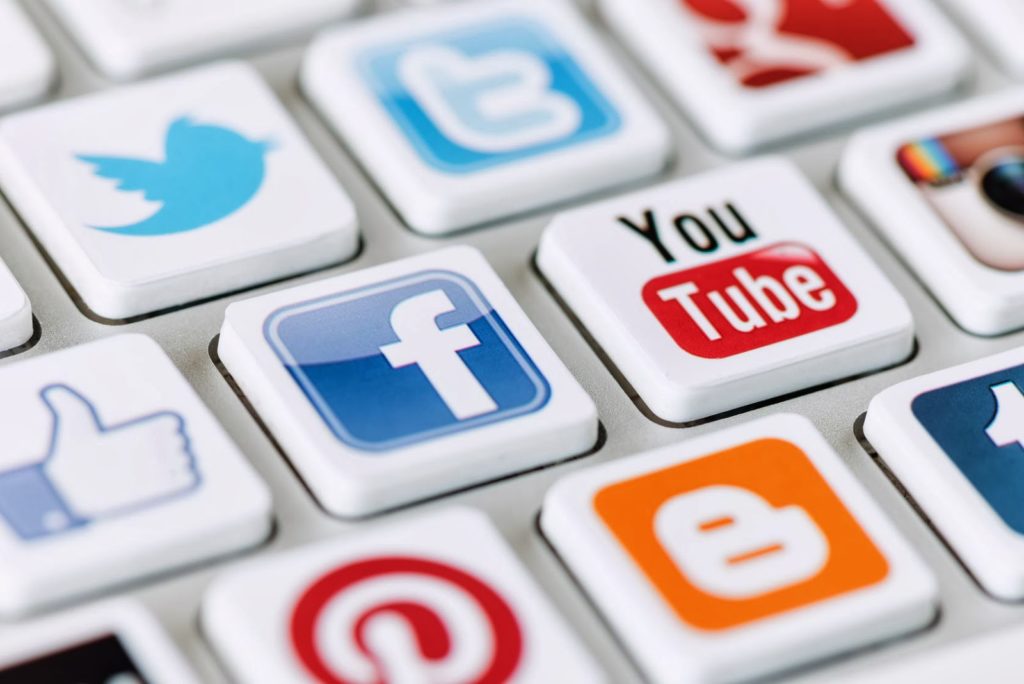Why Personal Brands Are Better Than Corporate For Social Media
Social media marketing is a rich and valuable practice for most companies. Countless opportunities, from visibility and reputation to new partnership and employees, are out there for the taking. But most businesses think of social media as existing in only one dimension: one surrounding the corporate brand.
In reality, it’s not only possible—but highly advantageous—to leverage the power of personal brands in conjunction with (or instead of) the central corporate brand.
Personal brands are exactly what they sound like—a set identity, expertise, and personality for an individual professional rather than a corporation. They can be used independently, or as extension “mouthpieces” for the main corporate brand, but either way, they offer some serious advantages over their corporate brand counterparts:
Trust
First, understand that corporate brands aren’t as readily trusted as other people. Trust in corporate brands, and advertising in general are at all-time lows, in part due to consumer resentment toward corporations and in part due to the sheer volume of advertising in circulation. Personal brands offer corporate brands a distinct opportunity to circumvent this trust pit, connecting with users on an individual basis and building trust on a personal level before introducing them to the company brand.
Voice
Personal brands also tend to have more personal voices, since it’s individual people who create them and retain control of them over time. Personal, conversational voices aren’t a good fit for every brand, but they are a good fit for every person; in human interaction, we crave a degree of friendliness and warmth, and personal brands are almost always able to provide this better than corporate brands. If you have multiple personal brands working in conjunction with one another, you can also offer “shades” of your core brand personality, appealing to different segments, such as more youthful or more experienced voices.
Flexibility
Your corporate brand has a strong reputation to uphold, but your personal brands are like “corporate brand lite.” They offer a lot more flexibility in terms of humor, personality, and even controversy. You’ll have to be careful not to cross a line here, as always, but you’ll be able to recover more quickly for a misstep with a personal brand than you would with a corporate brand. Feel free to let the jokes rip here, as long as you keep them tasteful.
Distinction
Personal brands also give you the ability to distinguish yourself from your competition, without even working that hard for it. All your personal brands will have a natural personality element to them, without having to change much, and you’ll definitely have a much different group of people than your competitors would or could.
Reach
Linking up all your personal networks to extend and complement your corporate network will lead to an overall increase in your content’s reach. That means every article you syndicate and every post you make has the potential to reach more people, earn more inbound links, and generate more value for your brand. Imagine a corporate brand that has 1,000 followers. Wouldn’t it be nice to have three personal brands circling it, each of which could reach another potential 1,000? That’s 4,000 potential impressions immediately, but as all four brands scale up in terms of reputation, that could eventually become 10,000 for 40,000 total—or even more, on a compounding scale!
Features
Personal brands sometimes have access to more features within social media platforms. For example, some platforms like Snapchat don’t offer specifically dedicated “company” profiles (unless you’re signing up as an advertiser). On LinkedIn LNKD +0.13%, only individual members have access to Groups—one of the most valuable areas of potential development in the platform.
Relationships
What’s really important in most businesses is the power of your customer relationships. A good product or service can be ruined by crappy customer service, and a bad experience can be overlooked if you have a solid rapport with your customer. Personal brands naturally lend themselves to more personal, welcoming customer relationships. Generally, they engage with leads directly from a social media interaction, which makes the sales process warmer to begin with. If they remain the point of contact, a much more intimate professional relationship can develop over time.
Lasting Power
This last benefit is a bit of a selfish one—one independent from your goals as a corporation. Personal branding has lasting power, and can serve as a resume for your future endeavors. If you plan on leaving the company eventually, or if you’ve built a startup and you’re unsure about its future, you can develop a complementary personal brand to hedge your bets and prepare for the worst-case scenario. Even if you stick with the company forever, having a strong personal brand has many beneficial side perks, such as more networking opportunities, and the ability to make a stronger first impression when people look you up.
This isn’t to say that personal brands are the only ones that should be used; in fact, it’s better if you hedge your bets with multiple personal brands orbiting around a central corporate brand, especially if those personal brands may eventually depart your company. If you aren’t convinced, try it out! I won’t lie, it takes a long time to develop the rhythm, reputation, and following necessary to reap the full benefits of a personal brand, but once you get the hang of it (or let your employees do the work), you’ll never go back.
Article written by Jayson DeMers of Forbes.
0

